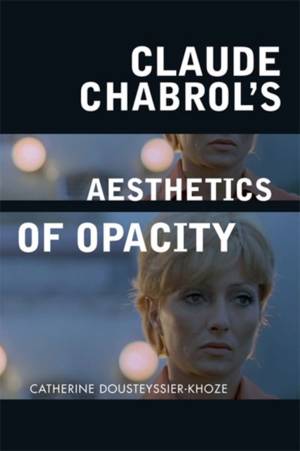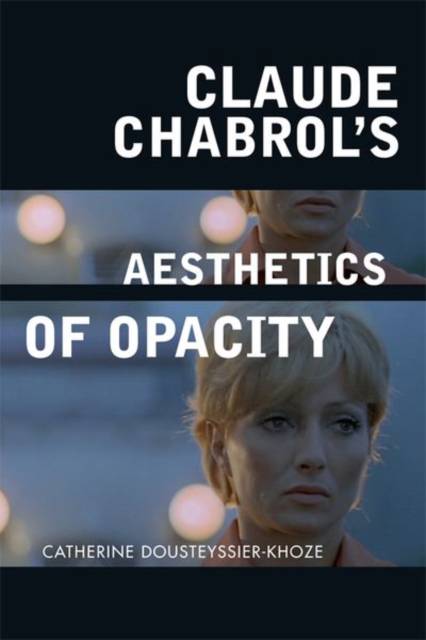
- Afhalen na 1 uur in een winkel met voorraad
- Gratis thuislevering in België vanaf € 30
- Ruim aanbod met 7 miljoen producten
- Afhalen na 1 uur in een winkel met voorraad
- Gratis thuislevering in België vanaf € 30
- Ruim aanbod met 7 miljoen producten
Omschrijving
Claude Chabrol's cinema is generally associated with a specific type of psychological thriller, one set in the French provinces and fascinated with murder, incest, fragmented families, unstable spaces and inscrutable female characters. But Chabrol's films are both deceptively accessible and deeply reflexive, and in this innovative reappraisal of his filmography Catherine Dousteyssier-Khoze explores the Chabrol who was influenced by Balzac, Magritte and Stanley Kubrick. Bringing to the fore Chabrol's 'aesthetic of opacity', the book deconstructs the apparent clarity and comfort of his chosen genre, encouraging the viewer to reflect on the relationship between illusion and reality, and the status of the film image itself.
Specificaties
Betrokkenen
- Auteur(s):
- Uitgeverij:
Inhoud
- Aantal bladzijden:
- 200
- Taal:
- Engels
Eigenschappen
- Productcode (EAN):
- 9781474431866
- Verschijningsdatum:
- 13/05/2019
- Uitvoering:
- Paperback
- Formaat:
- Trade paperback (VS)
- Afmetingen:
- 152 mm x 229 mm
- Gewicht:
- 340 g

Alleen bij Standaard Boekhandel
Beoordelingen
We publiceren alleen reviews die voldoen aan de voorwaarden voor reviews. Bekijk onze voorwaarden voor reviews.









